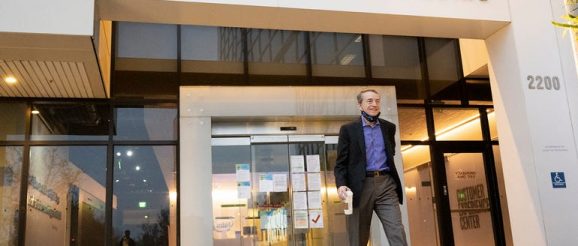AI students optimistic about healthcare innovation at Intel Vision | ZDNet

Nate writes about the intersection of education and technology. He’s also worked as a newspaper staff writer covering K-12 and higher education, business, local government, and public safety.
As the pandemic nears its third year, healthcare remains top of mind for many people.
Intel on Tuesday gave three students a high-profile platform at Intel Vision 2022. These young innovators all chose to share how they’d use technology to address healthcare challenges. They envision a world where tech can improve healthcare access and equity, identify biomarkers of disease before long-term debilitating illness takes hold, and empower the visually impaired with tools that can enhance their sensory experiences.
The students were among about 230 innovators from 20 countries. Participants in Intel’s inaugural AI Global Impact Festival in 2021 submitted proposals on how AI innovation could enrich people’s lives. Participants also had an opportunity to win prizes totaling $200,000, opportunities for mentorships, internships, and chances to win Intel-powered laptops.
Three festival winners joined Intel CEO Pat Gelsinger live on stage in Texas at one of the company’s highest profile annual events.
Gelsinger asked them: What’s the biggest challenge for the future, and how would you use tech to solve that problem?
Here’s some of what they had to say:
Arnav Bawa: AI to detect epileptic seizures
Bawa, 20, is set to graduate this spring from Chandler-Gilbert Community College in Arizona. He also participated in Intel’s AI for Workforce Program. His Global Impact project focused on developing an AI algorithm that can detect epileptic seizures before they happen.
“I think the greatest challenge of the future is limiting the impact that disease has on our lives. Almost everyone in the world faces at least one ailment during their lifetimes that impacts their well-being. And of course, due to globalization, we have to take into account shared health risks now, like the recent pandemic.”
Bawa added, “Thankfully, I believe that we’re now at a point, computationally speaking, where advances in edge computing and artificial intelligence are going to directly impact the development of our medical technology. And this is really important, because a common pattern between illnesses is that the earlier you can catch them, the easier it is to impact their impact on patients.”
“So in an ideal world, I envision that we will have systems that continuously or at least frequently monitor for biomarkers for these diseases so, that way, diseases that used to drastically change people’s lives become no more than an inconvenience in the future.”
Niharika Haridas: Microbial and pest outbreak prediction system
Haridas, 18, is a first-year student at the Vellore Institute of Technology in Chennai, India. Her Global Impact project focused on the development of a microbial and pest outbreak prediction system for precision agriculture.
“I come from a country with a massive population of 1.3 billion people, and people residing in rural areas rarely get access to quality healthcare facilities. But I do certainly believe that affordable and quality healthcare can certainly be a possibility, especially with technologies like AI.”
As an example, she said, several states in India introduced AI-based programs that expanded equity in public healthcare initiatives, such as programs that help diagnose, track, and COVID-19 cases.
“I would like to leverage all these advancements in technology in the healthcare sector and take them to the masses. I would like to ensure that every citizen in my country has the right to quality healthcare with minimal efforts.”
Maksymilian Paczyński: Fatigue-predicting app
Paczyński, 17, is a high school student at Nicolaus Capernicus Secondary School in Iłża, Poland. After finishing high school next year, he plans to study either intelligent systems with econometrics or data science.
His Global Impact Festival Project focused on developing an app that helps drivers detect fatigue and prevent accidents.
Closing thoughts
Many consider Gelsinger an industry luminary. He started his career at Intel in 1979. He’s credited as the architect of the original 80486 processor, which was introduced in the late 1980s. He left VMware to rejoin Intel as CEO in 2021.
Gelsinger shared high praise for the young innovators. “What really excites me about our three winners today is their passion about making technology truly a force for good, something to make society better,” Gelsinger said.
The company chose this year’s two-day Intel Vision event to launch several AI-related products for business customers. The company also highlighted how AI innovation may shape the future of grocery shopping.
